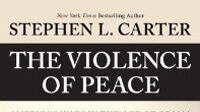There is a wonderful Herblock cartoon, from the days immediately after the overthrow of the shah of Iran, featuring student demonstrators running gleefully through the streets, chanting “The dictator is gone! Bring on the dictator!” Herbert Block had in mind, of course, the coming of the ayatollah. But the image captures quite nicely many decades of bipartisan American foreign policy, not only in South Asia but also in North Africa and the Middle East. There has been a sense that liberty and democracy are unsuited to the region, that absolute rulers are somehow natural to the people, or the history, or perhaps to the climate. Overthrow one, and another will take his place. The key to protecting your strategic interests, then, is making sure that as many of the leaders as possible are your guys rather than someone else's.
Not long ago, President George W. Bush was considered naive for suggesting that the promotion of democracy in the Arab world should be a staple of American foreign policy. Two years ago, the same charge was whispered against President Barack Obama, when he suggested, in his Cairo address to the Muslim world, that self-government and freedom “are not just American ideas, they are human rights.” True, due to the exigencies of pursuing the nation's strategic interests, neither man actually pressed very hard for democratization. Still, the more important point is that both were subjected to lectures from experts who insisted that somehow even to speak about democracy and freedom in the Arab lands was to show oneself to be a hopeless romantic, insufficiently hardheaded, out of touch with reality.
As of today, that essentially racist assumption is dead. That is the lesson of the popular revolution that has overthrown the ruler of Tunisia and caused the seemingly eternal president of Egypt to promise not to run for another term. (Presumably he will be gone well before his term expires.) The king of Jordan is forming a new government. The Yemen regime is worried. Even in Riyadh, uneasiness must be growing.
Up until now, President Obama has been boxed in, unwilling to stand behind Hosni Mubarak lest he offend the government that is bound to follow, probably in short order, yet equally unwilling to support the calls for Mubarak's ouster lest he offend other strongmen whose support he still needs. The box, however, has fallen apart. The movement is not fading but gaining strength. If Mubarak goes, tens of thousands will pour into the streets of Amman and Sana'a and elsewhere. What we are witnessing might in the end be on the par with the swift and sudden collapse of the communist dictatorships of Eastern Europe.
The much-maligned Bush Doctrine included a military component—fighting our foes on their soil rather than ours—that President Obama has fully adopted. It also included a moral component—the use of American influence to spread democracy and freedom—that was only rarely emphasized, perhaps because the Bush administration followed its own moral strategy only rarely.
“We need more than ever a clear Obama Doctrine that offers guidance to people who, yearning for liberty, might want to know before they go into the streets whether the United States will be on their side.”

President Obama has repudiated the idea of actively seeking to change the forms of government in other countries. Yet the words he spoke in Cairo two years ago might still serve as a beacon to oppressed people throughout the world, if only America lives up to their promise. Alas the Obama administration has mostly been distracted by other priorities. It has been unable to halt the gradual return of Lebanon to Syrian control, and it was far too late in offering support up for the demonstrators in Tehran, who wanted only freedom. Now that the old excuses are gone, we need more than ever a clear Obama Doctrine that offers guidance to people who, yearning for liberty, might want to know before they go into the streets whether the United States will be on their side.
• Michelle Goldberg: The Right’s Egypt Freakout• Jacob Bernstein: A Bush Twin’s Defection on Gay Marriage• Full coverage of the Egypt revoltThe world is vast and complex, but it is President Obama himself who has identified the yearning for freedom and democracy as universal. Nor is the point merely or mostly about noblesse oblige. Self-interest, too, is involved. In his 2009 address at West Point, President Obama insisted that the lives of our children and grandchildren “will be better if other peoples' children and grandchildren can live in freedom and access opportunity.” In his Nobel Prize address, he suggested that morality sometimes may demand fighting for the freedom of other people; how much more, then, might it demand to offer encouragement to support those fighting for their own?
Maybe the realists are right. Maybe the best we can hope for is that a post-Mubarak Egypt of turns into a sort of Pakistan, complete with weak central government, powerful army, and more political parties than anyone can count. But it is a little late to worry about what happens next. The map of Northern Africa and the Middle East is changing. You can easily trace the curve of freedom as the surge moves eastward. At some point, the land of the free has to get ahead of the curve.
Stephen L. Carter is the William Nelson Cromwell Professor of Law at Yale, where he has taught since 1982. His seven nonfiction books include God’s Name in Vain: The Wrongs. His first novel, The Emperor of Ocean Park (2002), spent 11 weeks on the New York Times bestseller list. His twelfth book, The Violence of Peace: America’s Wars in the Age of Obama, was published by Beast Books in January.






